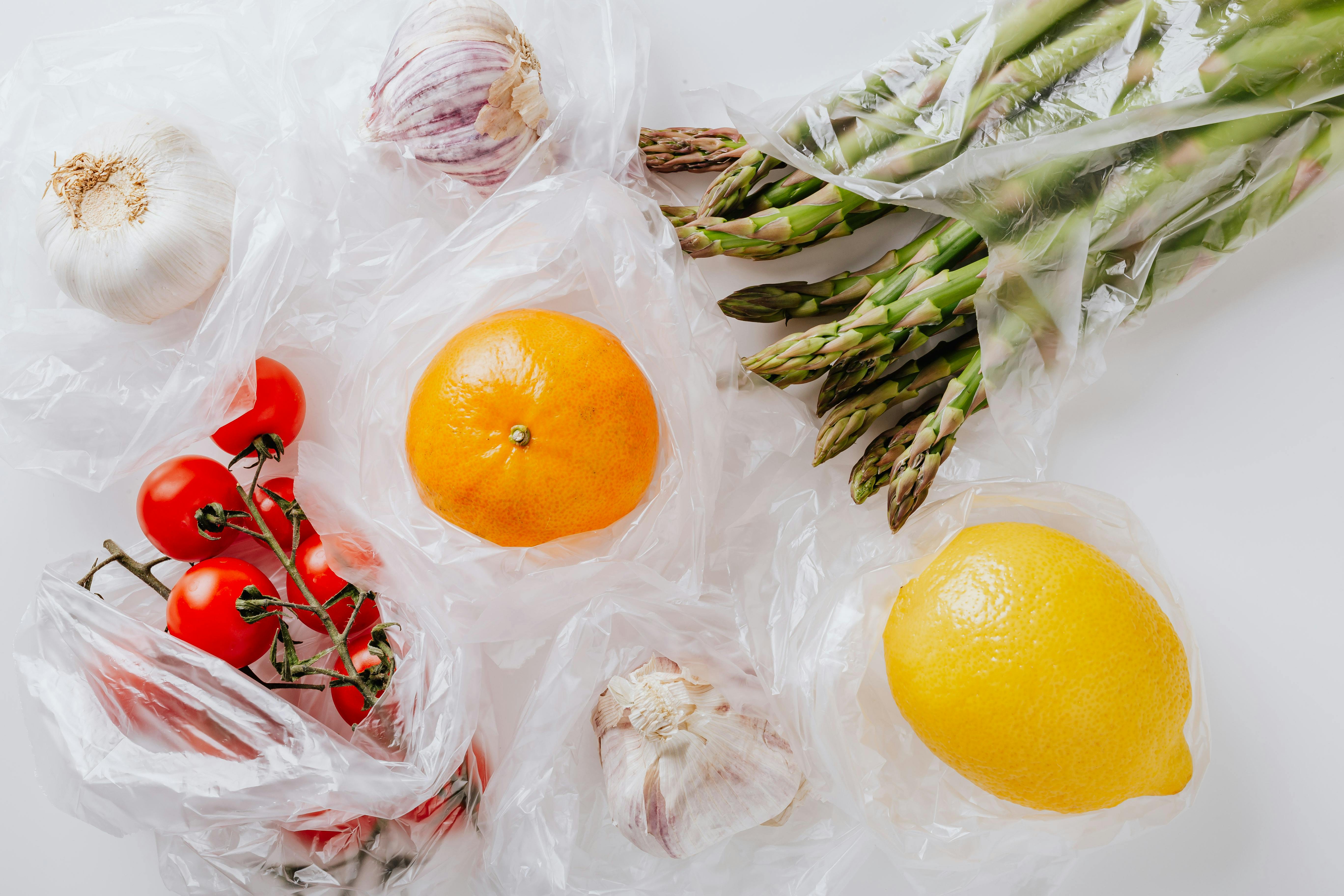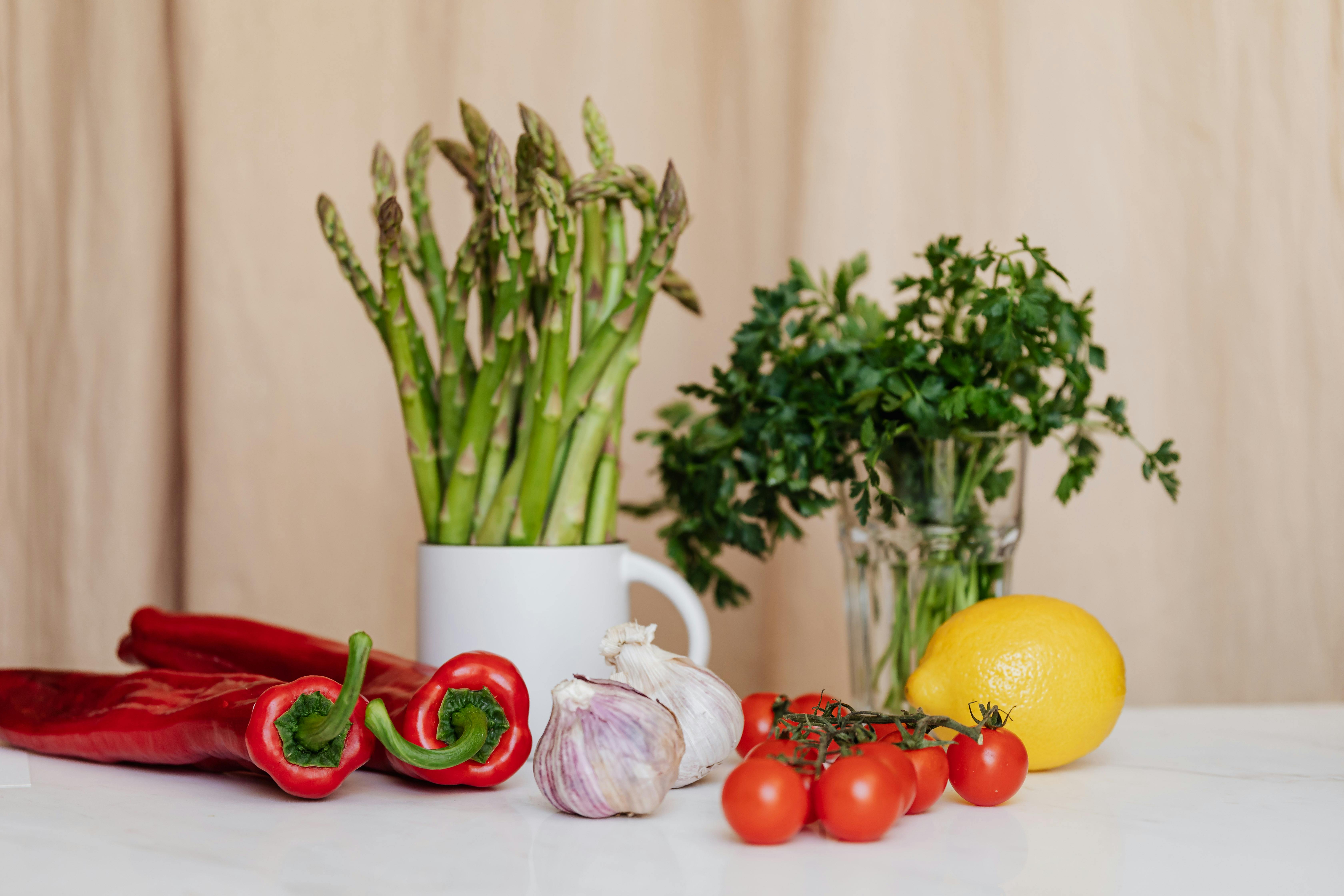Is Asparagus A Vegetable?
Yes, asparagus is a vegetable. It belongs to the lily family and is typically green, although it can also be white or purple in color. Asparagus is grown in many parts of the world and is popular for its unique flavor and texture. It has been eaten for centuries, both cooked and raw, and is highly nutritious. Asparagus is a great source of vitamins A, C, and K, as well as fiber. It also contains folate, iron, magnesium, phosphorus, potassium, zinc, thiamin and riboflavin.Asparagus can be used in a variety of dishes including salads, soups, stews and stir-fries. It can also be cooked on its own or added to other vegetables for added flavor. Asparagus pairs well with other vegetables such as carrots and onions as well as proteins such as chicken or tofu. When buying fresh asparagus look for firm stalks that are vibrant in color with tightly closed tips. The thinner stalks are more tender than the thicker ones and generally cook quicker.
Asparagus can be stored in the refrigerator for up to three days wrapped in a damp paper towel or cloth before cooking it. Before cooking asparagus trim off the woody ends by snapping them off where they naturally break or cutting them off with a knife. After trimming wash the spears thoroughly before cooking them however you prefer; steaming, boiling, roasting or grilling work great!
In conclusion, yes asparagus is indeed a vegetable that has been enjoyed by cultures around the world for centuries! Not only does it taste delicious but it’s also an excellent source of nutrients that can help support our overall health and wellbeing!
Nutritional Benefits of Asparagus
Asparagus is an excellent source of vitamins and minerals, making it a healthy and tasty addition to any diet. It’s packed with fiber, vitamin A, vitamin C, vitamin E, vitamin K, thiamin, riboflavin, niacin, vitamin B6, folate, pantothenic acid, calcium, iron, magnesium, phosphorus, potassium, zinc and manganese. Asparagus is also a good source of protein and antioxidants. This makes asparagus an ideal food for those looking to maintain a healthy diet.Asparagus is also low in fat and calories. A one-cup serving of cooked asparagus contains just 40 calories and less than 1 gram of fat. This makes it an ideal food for those who are trying to lose weight or maintain their current weight. Additionally, asparagus is high in dietary fiber which helps you feel fuller longer and aids in digestion.
The vitamins and minerals found in asparagus can help keep your body functioning at its best. Vitamin A helps keep your eyesight healthy while Vitamin C helps boost immunity. Vitamin K helps with blood clotting while folate helps your body produce new cells. Iron helps transport oxygen throughout the body while magnesium helps regulate nerve and muscle function.
In addition to its nutritional benefits, asparagus also has several health benefits that make it a great choice for anyone looking to improve their health. Asparagus contains compounds that may help protect against certain types of cancer including stomach cancer and colon cancer. It has also been shown to reduce inflammation which can help reduce the risk of heart disease and other chronic illnesses.
Overall asparagus is an excellent choice for anyone looking to improve their health or add more vegetables to their diet. With its nutritional benefits and health benefits it’s no wonder why this vegetable is so popular!
Different Types of Asparagus
Asparagus is a popular vegetable that is widely consumed around the world. It has a unique flavor and texture, and there are several different varieties of asparagus available. Some of the most common types of asparagus include green, white, purple, and wild.Green asparagus is the most widely available type of asparagus. It has a mild flavor and firm texture. It can be steamed, boiled, grilled, stir-fried or eaten raw. Green asparagus is usually harvested in the spring when it’s young and tender.
White asparagus is less common than green asparagus but it has a milder flavor and softer texture. It’s usually peeled before cooking to remove its tough outer skin. White asparagus can be boiled, steamed or served raw in salads.
Purple asparagus is sweeter than green or white varieties and has thicker stalks with a slightly nutty flavor. It can be cooked in the same way as green or white varieties but it takes longer to cook due to its thicker stalks.
Wild asparagus is not cultivated like other varieties and grows naturally in marshy areas or along roadsides in some parts of the world. It has thin stalks with an intense flavor that some people find more bitter than other types of asparagus. Wild asparagus should be cooked quickly to preserve its delicate flavor and texture.
Health Benefits of Eating Asparagus
Asparagus is a delicious and nutritious vegetable that is packed with essential vitamins and minerals. It is high in fiber, low in calories, and contains a variety of antioxidants that can help boost your health. Eating asparagus regularly can provide numerous health benefits, including improved digestion, better skin health, and reduced risk of certain diseases. Here are some of the top health benefits of asparagus.One of the biggest benefits of eating asparagus is its ability to improve digestion. Asparagus contains high amounts of dietary fiber, which helps to keep the digestive system running smoothly. Additionally, asparagus contains prebiotic inulin, which helps to promote the growth of beneficial bacteria in the gut. This can help to reduce symptoms such as bloating and constipation.
Asparagus also contains antioxidants such as vitamin C and carotenoids that can help protect against oxidative damage caused by free radicals. These compounds may also help reduce inflammation in the body, which could benefit overall health by reducing the risk for chronic diseases like heart disease and diabetes.
Eating asparagus may also have positive effects on skin health. Asparagus is rich in vitamin A, which is important for healthy skin cell growth and repair. Vitamin A also helps protect against sun damage by boosting collagen production and promoting healthy cell turnover. Additionally, asparagus contains vitamin E, an antioxidant that can help protect against ultraviolet radiation from the sun.
Finally, eating asparagus may offer protection against certain cancers due to its high levels of antioxidants and anti-inflammatory compounds. Research has shown that these compounds may be able to reduce oxidative stress on cells and prevent DNA damage associated with cancer development. While more research is needed in this area, eating a diet rich in antioxidant-rich foods like asparagus could be beneficial for overall health.
In conclusion, there are many potential health benefits associated with eating asparagus regularly. It has been shown to improve digestion, boost skin health, reduce inflammation, and even offer protection against some cancers due to its high levels of antioxidants and anti-inflammatory compounds. Adding this nutritious vegetable into your diet could provide numerous benefits for your overall wellbeing!

How to Cook Asparagus
Asparagus is a delicious and nutritious vegetable that can be cooked in a variety of ways. It can be boiled, steamed, roasted, grilled, sautéed, or stir-fried. Each method will yield a different flavor and texture. Here are some tips on how to cook asparagus.Boiling
Boiling is one of the most popular methods for cooking asparagus. To boil asparagus, you’ll need a large pot of boiling water and a colander or mesh strainer. Place the asparagus spears into the boiling water and let them cook for 3-5 minutes until tender. Once cooked, remove from the heat and drain in the colander or strainer. Add salt and butter to taste before serving.Steaming
Steaming is another great way to cook asparagus. To steam asparagus, fill a large pot with about an inch of water and place a steamer basket inside. Put the asparagus spears in the steamer basket and cover with a lid. Let them cook for 5-7 minutes until tender but still slightly crisp. Remove from heat and add salt and butter before serving if desired.Roasting
Roasting is an easy way to bring out the natural sweetness of asparagus spears. Preheat your oven to 425°F then arrange the spears on a baking sheet coated with oil or cooking spray. Sprinkle with salt then roast for 10-15 minutes until tender but still slightly crisp. Remove from oven and enjoy!Grilling
Grilling is another delicious way to prepare asparagus spears for your next meal. Start by preheating your grill to medium heat then brush each spear lightly with oil or melted butter on both sides before placing them on the grate over direct heat (you may also use indirect heat if desired). Grill for 4-6 minutes per side until just tender then remove from heat and enjoy!Sautéing
Sautéing is an easy method that’s great for adding flavor to cooked asparagus spears. Heat 1 tablespoon of oil in a skillet over medium heat then add the prepared spears along with any desired seasonings (such salt, pepper, garlic powder, etc.). Cook for 4-6 minutes per side until just tender then remove from heat and enjoy!Stir-Frying
Stir-frying is another great way to quickly cook up some tasty asparagus spears! Heat 1 tablespoon of oil in a wok or large skillet over medium high heat then add your prepared spears along with any desired seasonings (such salt, pepper, garlic powder, etc.). Stir fry for 3-4 minutes until just tender then remove from heat and serve!
Where Does Asparagus Grow?
Asparagus is a popular green vegetable that can be found in many countries around the world. It is a hardy perennial vegetable that can be grown in many different climates and soils. Asparagus grows best in cooler climates with well-drained soils, such as those found in Europe, North America, and parts of Asia. The plant needs plenty of sun and regular watering to produce the best quality spears. Asparagus should be planted in beds of well-prepared soil that is high in organic matter and has adequate drainage. It can take up to three years for the plants to become fully established before they start producing asparagus spears. Once established, a mature plant will produce an abundant harvest of spears for several years.
Is Asparagus Considered a Fruit or Vegetable If It Starts with a Vowel?
Asparagus is classified as a vegetable, regardless of how it starts. Many people may wonder about its categorization, especially when exploring culinary options. If you’re curious about what else might fall under different classifications, you can also discover fruits starting with o for an interesting twist on produce!
How to Store Asparagus
Storing asparagus correctly is important for maintaining its freshness and flavor. If stored properly, asparagus can last up to a week in the fridge. To store asparagus, start by trimming off the bottom inch of the stalks. This will help the asparagus stay fresher longer. Next, wrap a damp paper towel around the cut ends of the asparagus and place them in an airtight container or a zip-top bag. To keep them extra fresh, store them in the crisper drawer of your refrigerator. For longer storage, you can blanch and freeze your asparagus. Blanching involves briefly boiling the stalks until they are tender-crisp before plunging them into an ice bath to stop the cooking. Once blanched, pat dry and seal into airtight containers or zip-top bags before placing them in the freezer.Asparagus should always be stored in a cool area away from direct sunlight or heat sources. It’s also important to use it within 1-3 days of purchase for best flavor and quality. Storing asparagus correctly ensures that it will stay fresh for several days and will still be delicious when you’re ready to cook it!

Conclusion
Asparagus is a vegetable, not a fruit. Its scientific classification as a vegetable is based on the fact that it has no sweet taste, does not bear seeds, and does not contain the reproductive parts of a plant. Asparagus is also an important source of nutrients and vitamins such as vitamins A and C, calcium, magnesium, potassium, iron, and fiber. It can be eaten raw or cooked in various ways to bring out its unique flavor. Asparagus is an incredibly versatile food that can be incorporated into many different dishes and enjoyed by everyone.In conclusion, asparagus is most definitely a vegetable and should be considered as such when making dietary choices or meal plans. Its unique flavor and nutrient profile make it an excellent addition to any balanced diet.



